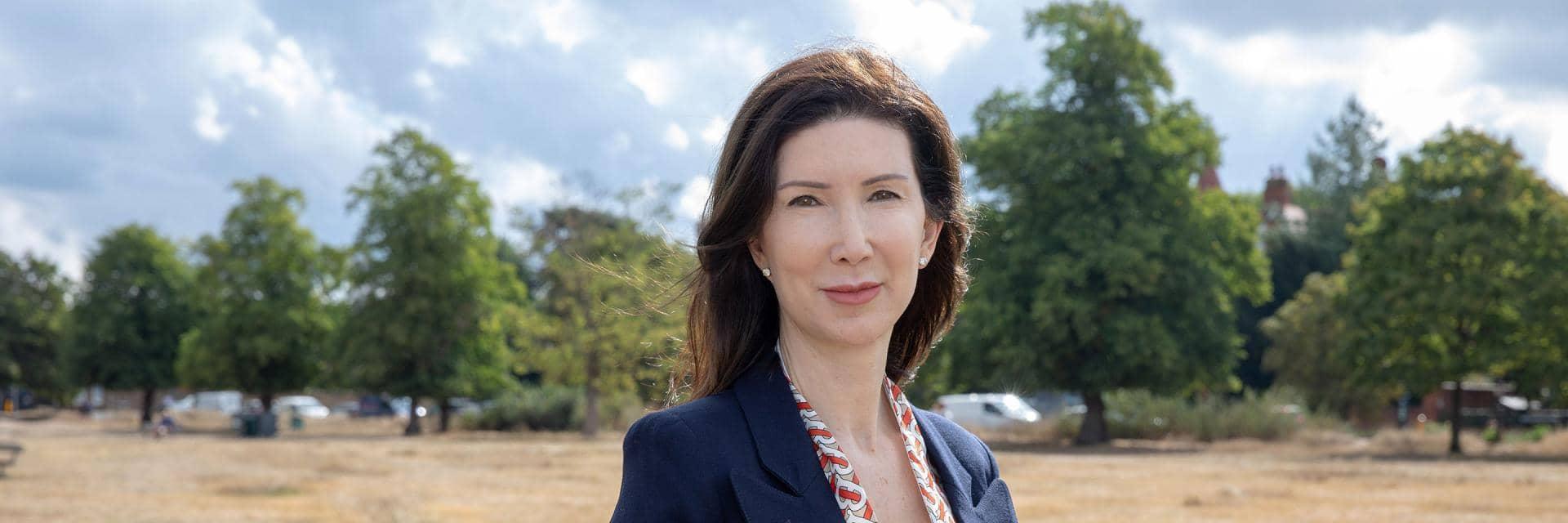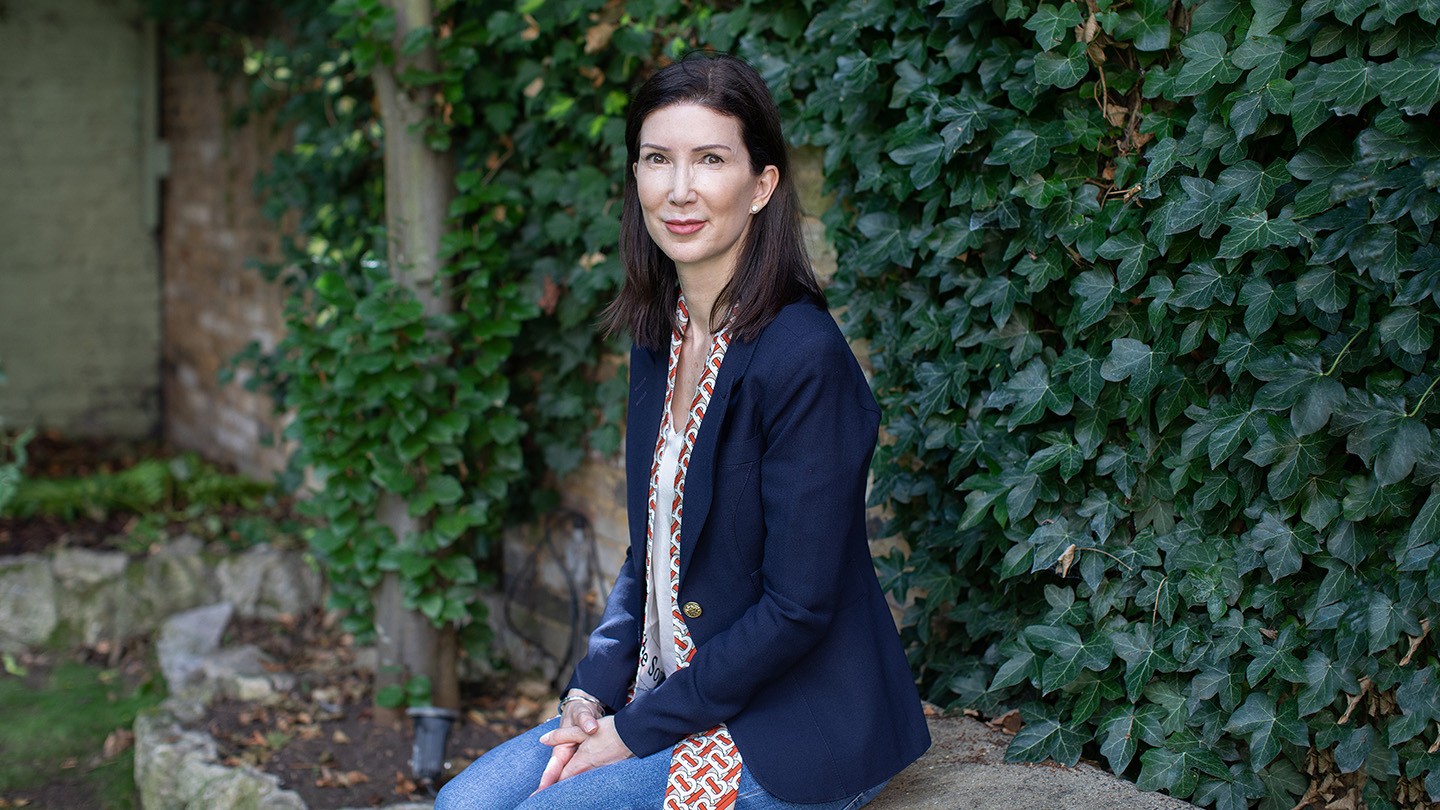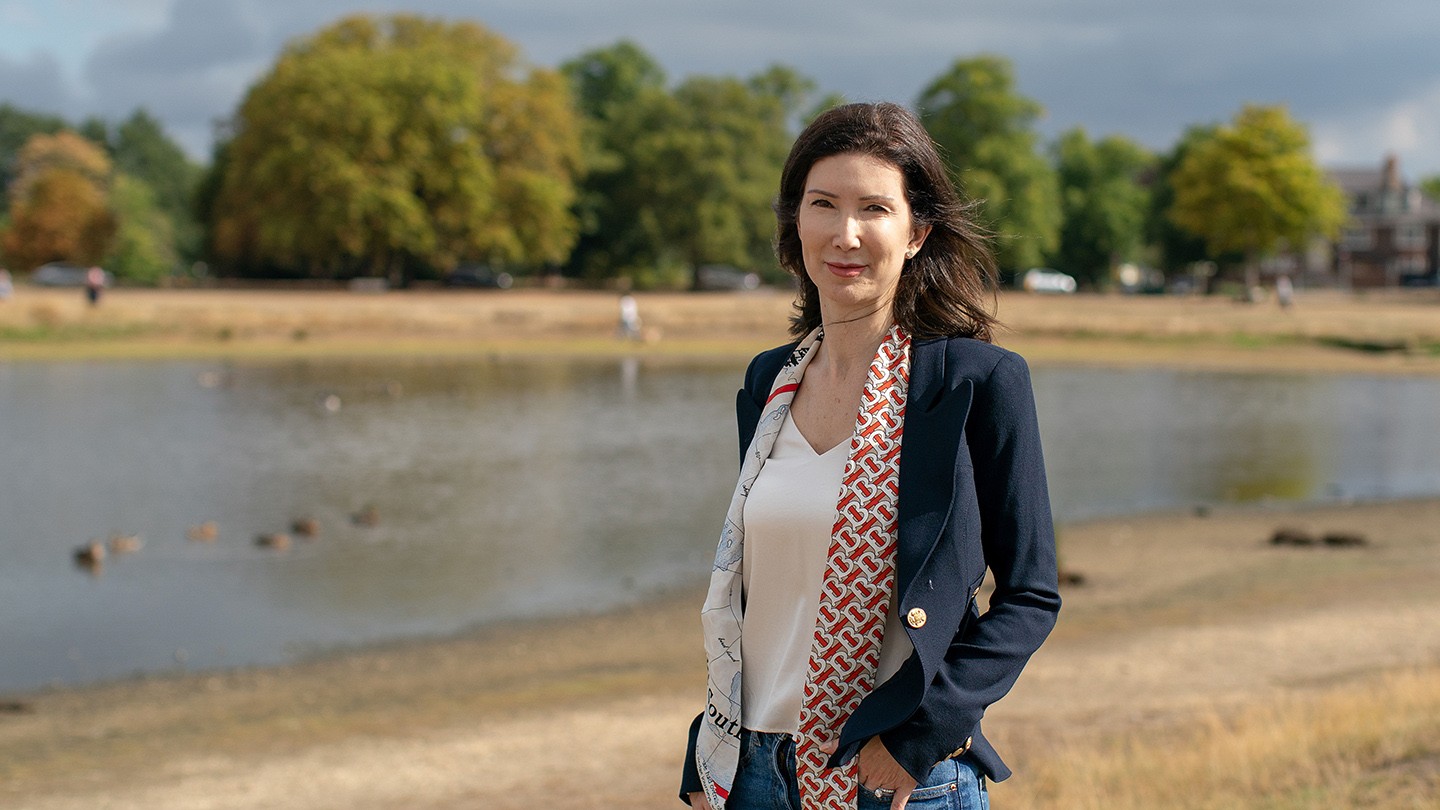
Culture
Leading Questions: Jayne Opperman
15 February 2021
Jayne Opperman, Chief Operating Officer at Barclays UK, shares what she’s learned about leadership over the course of her career – from how to build a brilliant team to how best to use technology to stay visible and connected during the coronavirus pandemic.
What was your early career like?
I started my career in consulting, which was a highly structured and disciplined environment. I learned the importance of quality, particularly when you're selling to clients. I think it instilled in me a lifelong love of learning, a constant need to update skills, to stay current and find new and different ways to add value.
What are the big leadership insights you’ve gained during your career?
I had a really good mentor some time ago now and he used to talk about three things: focus, alignment and discipline. Focusing on the few big things that are going to make a difference is a trait I see in a lot of leaders; in a big organisation like Barclays, making sure your priorities are aligned with the business agenda is really important; and then having discipline – whether that’s discipline in how you spend your time or get things done.

Jayne Opperman encourages upcoming leaders to “think big”.
I like to think my role is setting a clear vision and then inspiring others to be able to deliver that in a way that works for them.
Chief Operating Officer at Barclays UK
What do you think makes a good leader?
Be curious – in part it’s about learning, and in part it’s about always being open to different ideas, knowing when there’s a decision to be made and acting as quickly as you can. And I think it’s really important to be optimistic. It inspires people and helps them see a better future.
Creating a safe environment where people can give you honest feedback is really important as a senior leader, so you can understand when people are telling you what they think you want to hear and when people feel they can be really open with you. Finally, seeing the best in people and inspiring them to be the best that they can.
How would you describe your leadership style?
I think of myself as a transformation coach for the team. I’m quite resilient and calm. I like to think my role is setting a clear vision and then inspiring others to be able to deliver that in a way that works for them. Ultimately working with great people just encourages me to lift the bar higher.
What tactics do you use to build a team?
When I’m hiring people who I think can help achieve something great, technical skills are important – but not as important as attitude. I look for people who think deeply about challenges, bring energy to help us solve some of those challenges and have integrity so that they do the right thing for our customers.
Need to know: Jayne Opperman

Jayne joined Barclays in July 2019 as Chief Operating Officer, Barclays UK. In this role, Jayne is responsible for leading Technology, Operations and Channels for Barclays UK businesses, which include retail banking operations, consumer credit cards business, UK-based wealth offering and corporate banking for smaller businesses as well as all customer facing channels including the branch network, telephone and video banking, chat, social media and digital channels. Her primary focus is on transforming customer experience through leveraging latest technology and automation along with highly empowered, empathetic and enabled staff.. Before joining Barclays, she was Head of Consumer Technology, APAC and EMEA, for Citibank. She is married with two teenage children, and lives in London.
Quickfire Q&A
-
Ultimately, running outside if I can, a bit of yoga and maybe a good film on a Friday night with the family.
-
It’s hugely important. I’m not sure there’s a magic answer. I think making sure that you switch off and spend time with your loved ones actually makes you a better leader.
-
Try and build space into your day to reflect and take time out for your own wellbeing. Many of us would normally commute to work – using this time to meditate and prepare for your day, and then reflecting at the end of the day can help you separate work and home more clearly.
-
I’ve just finished The Watchmaker of Filigree Street by Natasha Pulley. If you like a good mystery with a bit of history, it takes you through Victorian London, Japan’s civil war – and it’s got a bit of fantasy in it too.
-
I’d be up early, run outside in the sunshine, drink coffee with my husband, map out what I need to achieve, have meetings with my team to talk about what we can do to make things better for customers and colleagues, and then go home for a family dinner. Then I’d probably spend a couple of hours at night reading and reflecting on what’s in store for tomorrow.
How has the coronavirus pandemic affected your approach to leadership?
Being visible has become much more important, as has communicating more clearly, being simpler with messages and ruthless prioritisation. Through the crisis, more than anything we focused on keeping the business running and doing everything we could to keep colleagues and customers safe. I think it has helped the whole organisation and certainly my team to focus on those two or three things, which all colleagues know are important.
How can leaders use digital technology effectively?
Digital technology should cut out the amount of effort it takes to get things done. We’ve seen a huge take-up of digital technology since the first UK lockdown – those colleagues who have transitioned to working from home are doing a great job. We’ve kept the tools as simple as possible and we’ve made it really easy for people to get help when they need to understand how to use them. I’m a huge fan of technology, but at its heart it works best when it makes things simpler for either customers or colleagues to do business with us.
Is there a leader you particularly admire?
Someone who really stands out to me is Bob Iger, who was CEO at Disney for 15 years. He oversaw the evolution of Pixar, Marvel and Lucasfilm, branched out the company globally and opened up a Disney resort in Shanghai. He used technology in a way that the company hadn’t before to increase the audience, but also make Disney even more innovative. It’s very impressive what he was able to achieve in a relatively short amount of time.

Jayne Opperman says it’s important for leaders to create a safe environment for colleagues.
Through the crisis, more than anything we focused on keeping the business running and doing everything we could to keep colleagues and customers safe.
Chief Operating Officer at Barclays UK
You were an ex-officio on the Barclays Group Executive Committee for four months. What has your work with the team taught you about leadership?
It’s been really great to observe how the most senior team at the bank worked together to steer it through the crisis. I’ve seen how they set just three objectives for the whole firm, which helped mobilise all teams in the same direction – first to safeguard the firm, second to protect the health and wellbeing of our colleagues, and third to ensure we were there to support our customers. They always think long term – they actively debate the different options and decisions. It’s been a great privilege to see how the whole team comes together as one.
How can leaders promote diversity and inclusion – especially in technology?
I don’t think the dial has moved significantly in over 25 years and we need to start thinking differently. Barclays has a big role to play and I think is making a difference: we’ve increased the number of women in senior leadership across technology, and we’ve also got an ethnicity workstream to make sure that our workforce reflects the richness of our customer base, which has people from all walks of life, cultures and orientations. If Barclays doesn’t look like our customer base on the inside, then we won’t be successful. We’re doing a lot – but we’ve got a lot still to do.
What piece of advice would you give to an upcoming leader?
Think big. I think quite often aspiring leaders are at a point in their career where they can seek permission to take that next step.